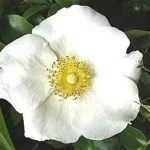Poetry has a unique way of capturing the essence of human experience. It distills emotions, thoughts, and stories into words that resonate on many levels. https://me-encantas.com/2020/03/23/los-mejores-libros-de-poesia-2020/ Whether you’re seeking solace in a sonnet or inspiration from free verse, poetry can transport you to different worlds and perspectives.
In 2020, numerous poets shared their voices through powerful collections that spoke to the heart of contemporary issues while exploring timeless themes. If you’ve ever wondered how to dive deeper into this enchanting realm or simply want recommendations for your next read, you’re in the right place.
Join us as we explore what makes poetry so significant and delve into the best poetry books released in 2020. From understanding its rich history to discovering tips for appreciation, this guide is designed for both seasoned readers and curious newcomers alike. Let’s embark on this poetic journey together!
What is Poesia and Why is it Important?
Poesía, or poetry, is more than just words on a page. It’s an art form that captures emotions and experiences in a way that often transcends language and culture. Through imagery, rhythm, and metaphor, poesía evokes feelings that resonate deeply within us.
The beauty of poetry lies in its ability to communicate complex ideas succinctly. A single verse can express what pages of prose might struggle to convey. This precision allows readers to connect with the poet’s voice intimately.
Moreover, poesía plays a vital role in reflecting society’s pulse—its joys, struggles, and aspirations. Poets have historically been the chroniclers of their times; they provide insight into human conditions and cultural shifts.https://me-encantas.com/2020/03/23/los-mejores-libros-de-poesia-2020/
In essence, poesía invites introspection and fosters empathy among diverse audiences. Its significance endures as it continues to inspire generations to explore life’s complexities through creative expression.
The History and Evolution of Poesia
Poesia has deep roots that stretch back to ancient civilizations. From the epics of Homer in Greece to the sacred verses of religious texts, poetry served as a means of storytelling and expression.
Over time, it evolved through different cultures. The Middle Ages saw troubadours compose lyrical tales of love and chivalry. During the Renaissance, poets like Shakespeare infused drama with rich language.
The Romantic era brought a wave of emotion and nature-focused themes. Poets expressed personal feelings while challenging societal norms.
With modernism came experimentation in form and structure. Free verse emerged, allowing greater freedom for creative expression.https://me-encantas.com/2020/03/23/los-mejores-libros-de-poesia-2020/
Today’s poesia reflects diverse voices and experiences, weaving together cultural threads from around the world. It continues to transform as new styles emerge, resonating with contemporary issues while honoring its storied past.
The Top 10 Poetry Books of 2020
The world of poetry saw a vibrant array of voices in 2020. Each book offered something fresh and resonant.
“Claudia Rankine’s ‘Just Us’ explores race and identity with profound insight.” It’s a powerful reflection that challenges readers to engage deeply with societal issues.
Next, “Ocean Vuong’s ‘Night Sky with Exit Wounds’ captivates through its lyrical beauty.” His exploration of love, loss, and the immigrant experience leaves an indelible mark.
Then there’s “Amanda Gorman’s ‘The Hill We Climb,’ which burst into prominence during a pivotal moment for America.” Her words ignite hope while urging collective action.
Consider also “Rupi Kaur’s ‘Home Body.’” This collection continues her legacy of connecting personal struggles to universal themes.
These selections showcase varied styles. They reflect diverse experiences that resonate widely. Explore these captivating works; they promise enriching journeys into the human spirit.
How to Choose the Right Poetry Book for You
Choosing the right poetry book can feel overwhelming, given the vast array of options available. Start by exploring different themes and styles. Are you drawn to love poems, nature writing, or perhaps existential reflections? Identifying your interests will narrow down your choices.
Next, consider your reading experience level. If you’re new to poetry, look for collections that are accessible yet profound. Anthologies can be a great introduction since they feature various poets and styles.
Don’t shy away from recommendations. Ask friends or browse online reviews to find popular titles that resonate with readers like you.
Sample a few pages before committing. This way, you’ll get a sense of the poet’s voice and style—after all, poetry is about connection on an emotional level!
Tips for Appreciating and Understanding Poesia
Reading poetry can feel like stepping into another world. To truly appreciate it, start by slowing down. Take your time with each line and let the words sink in.
Try reading aloud. The rhythm and sound create a different experience. It helps to hear the poem as intended by the poet.
Consider the imagery used in the verses. Visualize what you read; this can deepen your understanding of emotions conveyed.
Don’t shy away from ambiguity or complexity. Poetry often invites multiple interpretations, so embrace uncertainty instead of searching for absolute meanings.
Engage with context too—understand when and why it was written. Knowing about an author’s life adds layers to their work.
Keep a journal of your thoughts on various poems. Reflecting on your reactions fosters a deeper connection to the art form itself.
The Impact of Poesia on Society and Culture
Poesia serves as a mirror reflecting society’s complexities. It captures the essence of human emotions, struggles, and triumphs. Through vivid imagery and poignant language, poetry can articulate experiences that resonate deeply within diverse communities.
It often inspires movements for change. Poets have historically addressed social injustices, pushing boundaries and challenging norms. Their words ignite conversations about important issues such as identity, freedom, and equality.
Moreover, poesia fosters cultural connections. It transcends geographical barriers by celebrating shared human experiences while honoring unique traditions and histories. This exchange enriches our collective understanding of each other.
In educational settings, it encourages critical thinking and empathy among students. The exploration of poetic themes promotes emotional intelligence—essential for navigating interpersonal relationships in a rapidly changing world.
By interweaving personal narratives with universal truths, poesía continues to shape perspectives across generations.
Conclusion
Poesia is a timeless art form that has the power to resonate deeply with individuals and society as a whole. Its evolution over centuries reflects our changing cultures, emotions, and ideas. The top poetry books of 2020 have brought fresh voices and perspectives into the limelight, making it an exciting year for literature enthusiasts.
Choosing the right poetry book can enhance your appreciation of this art form. It’s essential to explore various styles and themes to find what resonates with you personally. With tips on how to dive deeper into each poem’s meaning, you’ll enrich your reading experience even further.
The impact of poesia extends beyond mere enjoyment; it challenges societal norms and inspires change. This dual role makes understanding and appreciating poetry so vital in today’s world.
Whether you’re a seasoned reader or new to the genre, engaging with poesía opens up endless possibilities for connection—both with yourself and others around you. So dive into those pages! Discovering the magic within them awaits you at every turn.
![]()





